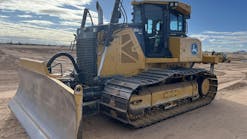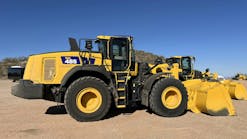Volvo Publishes Product Carbon Footprint Reports
Volvo has published product carbon emissions reports (PCF) for its conventional articulated haulers, wheel loaders, and excavators, as well as selected electric offerings, such as the ECR25 Electric and EC230 Electric excavators. The purpose of the reports is to "provide vital data for customers to understand their complete emissions and take action to reduce their own carbon footprint," it says.
The methodology developed by Volvo works by analyzing the carbon footprint of every aspect of a traditional and electric machines' life. It covers the extraction of raw materials, component manufacturing and machine assembly, through to recycling and end-of-life.
“Customers are now rightly looking with absolute scrutiny at carbon performance – on a par with other considerations like cost and quality," said Rickard Alm, head of the life cycle assessment (LCA) program Volvo. "With our PCF reports, we are making it easier to have quick access to the information needed and enabling them to act on their decarbonization ambitions."
In addition to the reports on traditional equipment, the reports also demonstrate that electric machines are a more sustainable choice over their entire life cycle when compared to diesel.
“Depending on the energy mix used to charge the batteries, the emissions from the use phase of an electric machine are reduced by up to 95%,” said Rickard. “While battery manufacturing results in a higher carbon footprint for electric machines during the production phase, when compared to diesel, overall carbon emissions for an electric machine are still reduced 80-90% over the entire life cycle.”
The LCA program forms part of a wider sustainability approach by Volvo CE, that also includes implementing low-carbon materials and moving to more fossil fuel-free alternative drivelines, such as those provided by its commercial line-up of electric machines and charging solutions.






